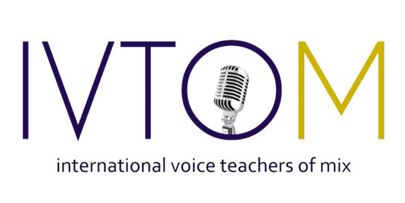Dealing with Allergies and Colds
Question: I’m looking for some resources regarding the benefits and side effects of cold/flu remedies-both natural and over the counter and prescribed. Also interested in some research on steroids. It’s cold/flu season and a lot of my singers have been sick and losing their voice. Some of them are being prescribed antibiotics, decongestants and even steroids to get better faster so they can continue performing… I know the drying effects of some medication but I’m looking for a chart or comprehensive list of medication and it’s effect on singers… Both positive and negative. Any recommendations for favorite natural remedies (or over the counter medicine) for a singer with allergies or stuffy nose or chest congestion, cough etc. Does anyone have a good resource for information about the negative side effects of medication, specifically cold/flu medication, antibiotics on the voice? I’m also interested in the latest information or any of your opinions/experience with steroids for singers who need to perform on a sick/hoarse voice. Greatly appreciated. Thank you!
Answer: Regarding effects of steroids/medication on the voice
in a nutshell: stay away from decongestants, antihistamines, inhalers. Go for regular saline rinses of the sinuses, use mucinex (just “plain”) to loosen up mucus when necessary. and singing while sick is never a good idea and should be avoided if at all possible.
I survive allergy season with nasal corticosteroid spray (nasonex, flonase, omnaris, etc) to avoid swelling of the sinuses in order to drain naturally, and sinus rinses 2x day. I also regularly see my sinus specialist every 4 months.
Rocio Guitard
(Dean would add that although “singing while sick is never a good idea” as Rocio has stated, I still usually encourage doing vocal warmups as vocal therapy during the sickness, but I do encourage singers to stop talking and definitely not to force their voice.)
Also a quick reply: oral antihistamines (pills) are more drying than the nasal spray antihistamines (Patanase, Astelin, Astepro). Decongestants are not necessarily drying, but can increase blood pressure and heart rate, so should be used with caution. Inhalers are sometimes a necessary evil, but all have the ability to induce a chemical laryngitis because they are passed over the vocal folds (Asmanex and Dulera are more favorable than some of the others.) I agree that singing while sick is ill advised, however, if there is a make or break performance that cannot be rescheduled, a burst dose of Prednisone or Decadron is really not the end of the world. There are some side effects, of course, but most patients only experience euphoria and a little bit of the jitters. People on psych meds should be approached with caution when using steroids. Antibiotics are really only helpful if there is a bacterial infection. Lots of times people have a viral infection (the cause of the common cold and the flu) and antibiotics really don’t treat viruses, only anti-virals do and there aren’t that many of them out other (amantadine, Tamiflu, and Relenza are some of the more commonly used medications.) In terms of natural remedies, there are a plethora of essential oils that do have some benefit. Sage, Basil, and Thyme all have some antibiotic properties and can be soothing for the throat. Licorice root and marshmallow tend to help break up mucus. Horse chestnut oil can help with swelling and vocal varices, and myrrh also has some medicinal properties. HOWEVER, this is not a well regulated industry, so verifiying what’s in the bottle is pretty important. I also believe in prevention, so I am a fan of Airborne and Wellness Formula, but proper nutrition, hydration, and rest take care of building one’s immune system to help lower susceptibility to illness in the first place. Dr. Steven SIms

